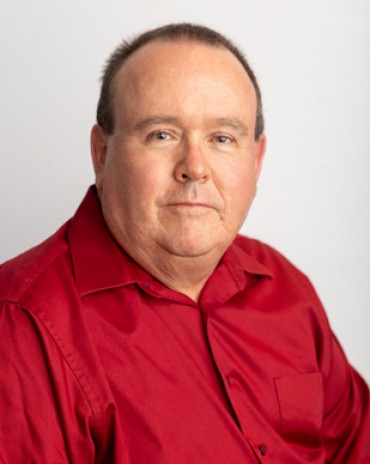Les Manns

Professor
Phone Number: 402.826.8274Department: Economics
Office: GA416
Email: les.manns@doane.edu
Primary Campus: Crete
Credentials: BA, MA, PHD
Dr. Leslie (Les) Manns is Professor of Economics in the College of Business. He serves as the Chair of the Economics Department. Les joined Doane University in 1992 and primarily teaches classes for the Economics programs. He earned a Ph.D. in Economics (1993) from the University of Nebraska, and his M.A. in Economics (1983) from the University of North Dakota.In his tenure at Daone, Les has served on numerous committees, including Promotion & Tenure, Honors Program, and Liaison to the Board of Trustees Audit and Budget. He has held several leadership positions, including interim Vice President for Academic Affairs, President of the Nebraska Economics and Business Association, Chair of the Economics and Business Division, and member of theInterfaith Housing Coalition Board of Directors. His research interests include low stake quizzes, health care, and artificial intelligence. In 2007, he was interviewed for a documentary film, GasHole, which premiered the next year. Les is a two-time recipient of the James Bruning-Student Congress Outstanding Teacher Award twice.
Education
Ph.D. (Economics), University of Nebraska, 1993
M.A. (Economics), University of North Dakota, 1983
B.A. (Economics), University of North Dakota, 1979
Courses
- Macroeconomics and Literacy (ECO 203)
- Microeconomics and Business (ECO 204)
- Intermediate Macroeconomics (ECO 303)
- Money and Banking (BUS/ECO 307)
- History of Economic Thought (ECO 215)
- Health Care Economics (ECO 329)
- Economic Development (ECO 330)
- Economics Seminar (ECO 495)
Professional Experience
Chair of the Economics Department, 2007-Present
Interim Vice President of Academic Affairs, Doane University, 2009-2010
Teaching Experience
Doane University, 1992-Present
Nebraska Wesleyan University, 1991
University of Nebraska-Lincoln, 1987-1990, 1991-1992
Valley City State University, 1984-1987
University of Minnesota-Crookston, 1982-1983
University of North Dakota, 1980-1982, 1983-1984
Professional Accolades
James Bruning-Student Congress Outstanding Teacher, Doane College, 2001
James Bruning-Student Congress Outstanding Teacher, Doane College, 1996
Professional Highlights
- OLLI (Osher Institute for Lifelong Learning) seminar titled “Robotics, AI, and the Future of Work,” Lincoln, NE November 15, 2018.
- Visiting Scholar, presented seminars for business and economics faculty titled “Strategies for Teaching and Assessing Learning in Business and Economics Courses,” Agricultural University of Hebei, Baoding, China, May 24 – June 9, 2017.
- Baccalaureate Speaker, Commencement Weekend, “UFFDA: Now Comes the Hard Part.” Doane College, Crete, NE, May 7, 2016.
- Interviewed for documentary film, GasHole, directed by J. Wagener and S. D. Roberts. Interview conducted 2007; film premiered 2008; film released on DVD 2011.
- Facilitator/Discussant, Mary Riepma Ross Media Arts Center Film Talk on "Who Killed the Electric Car?" University of Nebraska, October 8, 2006
- Guest Lecturer, Brownville Lyceum Political Café Series, "Economic Globalization: The Road to Shangri-La or the Road to Nowhere." Brownville, NE April 2, 2006.
- Facilitator/Discussant, Mary Riepma Ross Media Arts Center Film Talk on "Darwin's Nightmare." University of Nebraska, February 12, 2006.
- Manns, L. D. (1998). Dominance in the Oil Industry: Standard Oil from 1865 to 1911." In D.I. Rosenbaum (Ed.), Market Dominance: How Firms Gain, Hold, or Lose IT and the Impact on Economic Performance. Westport, CT: Praeger.
- Manns, L. D. (1995). Regulation of On-site Medical Waste Incinerators in the United States and the United Kingdom: Is the Public Interest Being Served?" Journal of Economic Issues, 29(2): 545-554.
- Rosenbaum, D. I., & Manns, L. D. (1994). Cooperation V. Rivalry and Factors Facilitating Collusion. Review of Industrial Organization, 9: 823-838.
- Affiliated to American Economic Association, Association for Evolutionary Economics, and Nebraska Economics and Business Association
How did you become interested in teaching?
I started college at the University of North Dakota in 1975 majoring in history. At the beginning of my junior year I changed my major to economics (it’s all I ever really wanted to study). Upon graduating with my bachelor’s degree in economics, I was accepted into the master’s program at UND. I decided to pursue a PhD in economics at the University of Nebraska in 1987. I began teaching at Doane in the fall of 1992 and graduated from UNL with a PhD in economics in May 1993. And, the rest, as they say, is History OR, in my case, Economics.
What is one of your favorite quotes?
My favorite quote is from Julia Child. “Everything in moderation, including moderation.” I have tried to live up to this quote for much of my life. To me, Julia Child is saying that one should always be willing to push oneself to try new foods, new places, experiences, and opportunities to learn new things about yourself and others. I love her use of the word ‘moderation’ as it is both a warning not to overindulge in whatever you are doing; but, at the same time, to not be afraid to immerse yourself fully so as to maximize your learning and your enjoyment.
What is your teaching style?
My office door is always open and I greatly enjoy it when students stop by just to chat. I share much about my life with my students before, during, and after my classes. I think that helps students get to know me better as a person and not just their economics teacher. Occasionally, I will bring treats, usually something I have baked or bought, to share with them. In addition, we host a graduation BBQ at our house in Lincoln every spring for all the students graduating with either a major or minor in economics.
